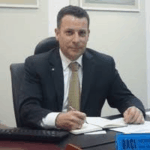Building a transformational and inspirational vision that is capable of mobilizing States and industry on a common road for the benefit of all South American people, is the spirit of the declaration to promote connectivity through the development and sustainability of air transport in the Pan-American Region (Vision 2020-2035).
Many of us pay little attention to the recaps of international meetings. However, we are more critical and assertive when we experience flight delays, we are frustrated when we compare the cost of airline tickets with other regions of the world and we admire other airlines’ abilities to connect the world and their respect for the environment, in addition to the efficiency of the governments that oversee them.
Many of us pay little attention to the recaps of international meetings. However, we are more critical and assertive when we experience flight delays, we are frustrated when we compare the cost of airline tickets with other regions of the world...
Perhaps we never asked ourselves how we could generate a transformative process to achieve better levels of air connectivity within South America, with high safety standards and respect for the environment, with solid institutions that generate the necessary transformative leadership.
This requires the development of a long-term vision and a work plan to influence senior government officials to adopt public policies and make decisions. This is where civil aviation should do its long-term strategic planning.
This transformational process is precisely the spirit of the declaration to promote connectivity through the development and sustainability of air transport in the Pan-American Region (Vision 2020-2035), adopted by the Ministers and aeronautical authorities of the Member States of Pan-America, the representatives of international and regional organizations, and industries. Said declaration was adopted by the aforementioned actors when they attended the Fourth Global Aviation Forum of the International Civil Aviation Organization (ICAO) (IWAF/4), held from 17 to 19 September 2018 in Fortaleza, Brazil.
They expressed their commitment to support the civil aviation authorities of the Region for the development of the national and regional action plans necessary for the implementation of our vision. They also invited the Pan American States, other ICAO Member States, the Latin American Civil Aviation Commission (LACAC), industry associations, aircraft manufacturers and other interested sectors to support the achievement of this vision.
This vision is based on four fundamental pillars, which are as follows:
- A Region offering to the population greater access to the benefits of air transport, so that the development of our populations can count on the timely support of a heterogeneous, seamless, dynamic and safe air transport network at all levels. This air transport network’s efficiency in terms of infrastructure and services will be world class, achieving a greater degree of connectivity between the people of the Region and the rest of the world, and thus encouraging greater commercial, social and cultural exchange.
- Leadership in safety, in compliance with international civil aviation standards, and in accordance with a harmonized environment. This makes it possible to take advantage of economies of scale for the civil aviation authorities in order to offer an appropriate level of oversight to Air Navigation Services Providers (ANSPs) effectively and efficiently, without creating unnecessary costs to the States and the industry, and to build an environment conducive to the development of the air transport business.
- State entities in charge of guaranteeing the safe, orderly and sustainable development of air transport will be empowered institutions with the capacity to perform their functions efficiently and effectively, generating confidence, stimulating innovation and promoting the continued growth of the sector.
- An aviation system responsible for the sustainability of the environment that is developed in harmony with nature while protecting life on the planet and preserving the natural values that coexist on a daily basis with aviation activity.
 About the author
About the author
Oscar Quesada is the Deputy Regional Director of ICAO’s South American Office.
